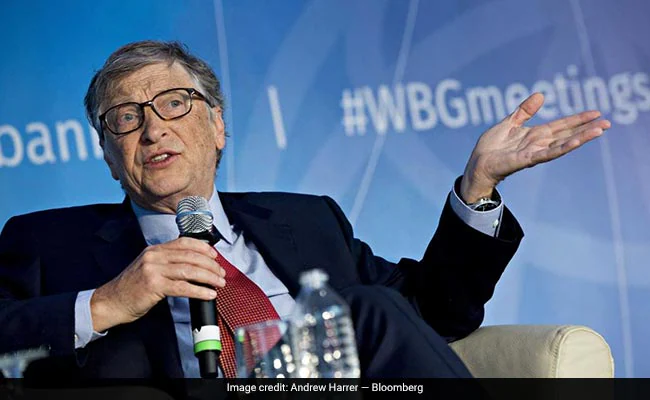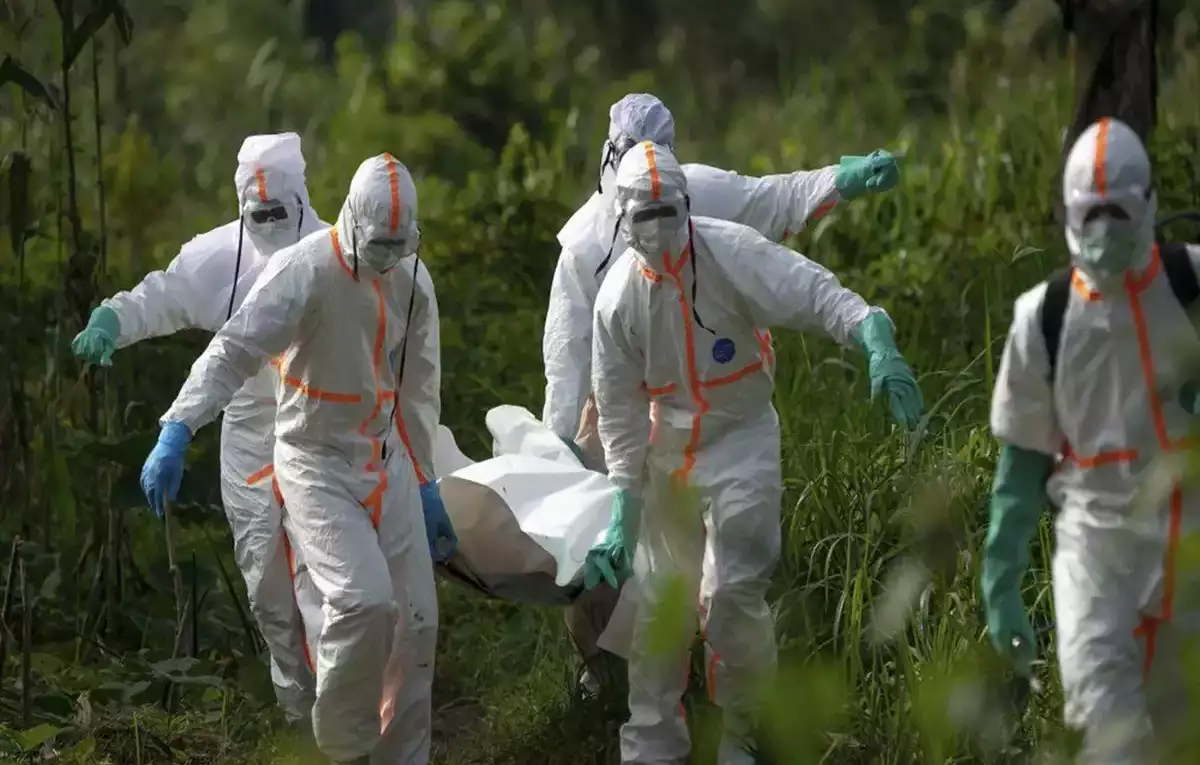Home / covid / Global Pandemic Threat: Bill Gates Warns the World Remains Unprepared for the Next Outbreak
Global Pandemic Threat: Bill Gates Warns the World Remains Unprepared for the Next Outbreak
By: My India Times
3 minutes read 49Updated At: 2025-02-25

Billionaire philanthropist stresses urgent need for stronger global health infrastructure
Bill Gates has once again raised concerns over the world's preparedness for the next global pandemic, warning that a new outbreak could emerge from anywhere and catch humanity off guard. In a recent interview, the Microsoft co-founder and global health advocate emphasized that despite the devastating lessons of COVID-19, the world has not taken sufficient steps to prevent future pandemics.
A Looming Global Health Crisis
Gates, who has been vocal about pandemic threats for years, highlighted that the unpredictability of infectious diseases poses a significant risk. "The next pandemic could come from anywhere," he said, underscoring that viruses can jump from animals to humans in any part of the world. Given the rapid pace of global travel, a local outbreak could escalate into a worldwide crisis in a matter of days.
He warned that while scientific advancements in vaccines and treatments have accelerated, the fundamental issues of global health security remain largely unaddressed. The lack of a coordinated global response system, insufficient healthcare investments, and weak disease surveillance mechanisms leave the world vulnerable to the next health catastrophe.
Lessons from COVID-19—But Are We Learning?
Gates pointed out that while the COVID-19 pandemic exposed critical gaps in global health infrastructure, many governments have yet to implement necessary reforms. "We saw what happened when countries hesitated to act," he said. "Delays in response, lack of medical supplies, and misinformation worsened the crisis. We can't afford to make the same mistakes again."
One of the key takeaways from COVID-19, according to Gates, is the need for rapid and coordinated action. He stressed that developing nations, in particular, require stronger support to build healthcare capacity and access to emergency medical supplies. Without this, future outbreaks could disproportionately affect poorer countries, further widening global health inequalities.
A Call for Global Collaboration
To prevent another catastrophic pandemic, Gates called for a multi-pronged approach:
- Stronger Surveillance Systems: Improved monitoring of emerging diseases can help detect outbreaks early and contain them before they spread.
- Increased Healthcare Funding: Governments and private sectors must invest more in vaccine research, public health infrastructure, and emergency response systems.
- Global Cooperation: The world needs a coordinated strategy for pandemic preparedness, with nations working together instead of responding in isolation.
- Innovation in Medical Technology: Advancements in AI, data analytics, and rapid vaccine production should be leveraged to improve pandemic response.
Gates also suggested that pandemic preparedness should be treated with the same urgency as national security threats. "We invest trillions in military defense, but we saw how a tiny virus could cripple economies, disrupt lives, and take millions of lives. It's time we view pandemics as an existential threat and act accordingly."
The Urgency of Preparedness
The COVID-19 pandemic resulted in over 6 million deaths worldwide and caused severe economic disruptions. Yet, Gates warned that a future pandemic could be even deadlier if nations remain complacent. He urged world leaders to act now rather than wait for another crisis to strike.
"If we prepare adequately today, we can save millions of lives tomorrow," he concluded. "The cost of inaction is far greater than the investment needed to prevent the next pandemic."
With infectious disease threats growing due to climate change, urbanization, and increased human-wildlife interaction, experts agree that Gates' warning should not be ignored. Whether the world will heed his call remains to be seen, but one thing is clear—the next pandemic is not a matter of "if" but "when."
....Billionaire philanthropist stresses urgent need for stronger global health infrastructure
Bill Gates has once again raised concerns over the world's preparedness for the next global pandemic, warning that a new outbreak could emerge from anywhere and catch humanity off guard. In a recent interview, the Microsoft co-founder and global health advocate emphasized that despite the devastating lessons of COVID-19, the world has not taken sufficient steps to prevent future pandemics.
A Looming Global Health Crisis
Gates, who has been vocal about pandemic threats for years, highlighted that the unpredictability of infectious diseases poses a significant risk. "The next pandemic could come from anywhere," he said, underscoring that viruses can jump from animals to humans in any part of the world. Given the rapid pace of global travel, a local outbreak could escalate into a worldwide crisis in a matter of days.
He warned that while scientific advancements in vaccines and treatments have accelerated, the fundamental issues of global health security remain largely unaddressed. The lack of a coordinated global response system, insufficient healthcare investments, and weak disease surveillance mechanisms leave the world vulnerable to the next health catastrophe.
Lessons from COVID-19—But Are We Learning?
Gates pointed out that while the COVID-19 pandemic exposed critical gaps in global health infrastructure, many governments have yet to implement necessary reforms. "We saw what happened when countries hesitated to act," he said. "Delays in response, lack of medical supplies, and misinformation worsened the crisis. We can't afford to make the same mistakes again."
One of the key takeaways from COVID-19, according to Gates, is the need for rapid and coordinated action. He stressed that developing nations, in particular, require stronger support to build healthcare capacity and access to emergency medical supplies. Without this, future outbreaks could disproportionately affect poorer countries, further widening global health inequalities.
A Call for Global Collaboration
To prevent another catastrophic pandemic, Gates called for a multi-pronged approach:
- Stronger Surveillance Systems: Improved monitoring of emerging diseases can help detect outbreaks early and contain them before they spread.
- Increased Healthcare Funding: Governments and private sectors must invest more in vaccine research, public health infrastructure, and emergency response systems.
- Global Cooperation: The world needs a coordinated strategy for pandemic preparedness, with nations working together instead of responding in isolation.
- Innovation in Medical Technology: Advancements in AI, data analytics, and rapid vaccine production should be leveraged to improve pandemic response.
Gates also suggested that pandemic preparedness should be treated with the same urgency as national security threats. "We invest trillions in military defense, but we saw how a tiny virus could cripple economies, disrupt lives, and take millions of lives. It's time we view pandemics as an existential threat and act accordingly."
The Urgency of Preparedness
The COVID-19 pandemic resulted in over 6 million deaths worldwide and caused severe economic disruptions. Yet, Gates warned that a future pandemic could be even deadlier if nations remain complacent. He urged world leaders to act now rather than wait for another crisis to strike.
"If we prepare adequately today, we can save millions of lives tomorrow," he concluded. "The cost of inaction is far greater than the investment needed to prevent the next pandemic."
With infectious disease threats growing due to climate change, urbanization, and increased human-wildlife interaction, experts agree that Gates' warning should not be ignored. Whether the world will heed his call remains to be seen, but one thing is clear—the next pandemic is not a matter of "if" but "when."
By: My India Times
Updated At: 2025-02-25
Tags: covid News | My India Times News | Trending News | Travel News
Join our WhatsApp Channel
















-outbreak in-china.jpg)



























































































.png)
 (1).png)























